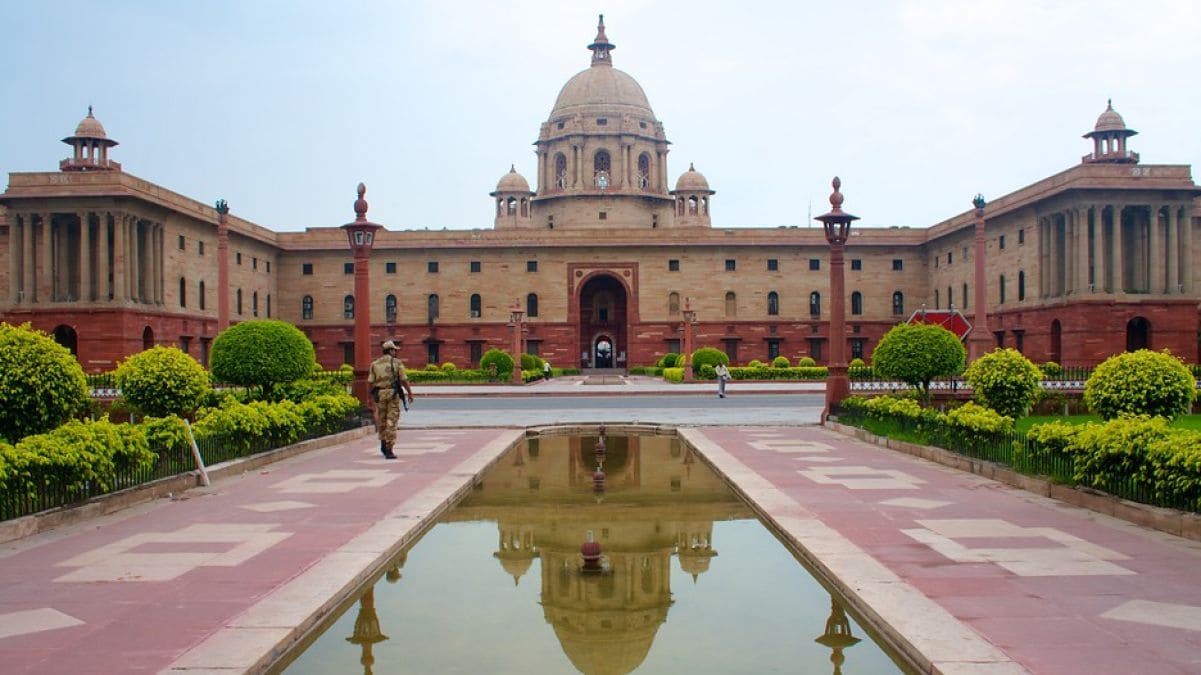Public Administration
The syllabus of Public Administration is relatively short as well as it is well defined. The study material is easily available and compact in nature. It being a popular and scoring optional subject has got easy availability of experienced guidelines. The scientific and logical nature of the subject helps to prepare the subject for main examination within less span of time. This helps the candidates for the preparation of Essay and General Studies papers with “extra time” and ensures better performance and marks in examinations. Thus, the Public Administration is a popular and successful optional subject in Civil Service Examination.
The students of Political Science have got extra edge in this subject as the Public administration is the offspring of Political Science. Henceforth, there are many similarities between the two in their subject matter. The knowledge and concepts of Political Science are used in this subject for variation in the style of presentation of the answers. It is, of course, more scoring and has got concise syllabus than the other subjects. The portion of Indian Administration is very much related to the constitutional aspects of India. So the study of Public Administration as an optional subject is very much helpful for the Indian Polity portion of General Studies in the Preliminary and Main examination as well. Now a days, the questions of Indian Polity in the examination have got the applied and administrative nature and implications. The Public Administration makes such answers more relevant.
The study of Indian Administration, specifically the units of Local Administration, Administrative Reforms, Indian Law and Order Administration, District Administration, Role of Public Sector in perspective of liberalization etc. helps the candidates to prepare the essay paper with better understanding of problems and solution aspects with practical approach with difference. Of course, the practical understanding gives them an edge in interview as well, which makes the space sure in the final success list. The most important aspect of Public Administration is that it has got relevance in the CSAT in the Preliminary Examination. The conceptual nature of the subject helps the candidates accommodating and retaining the facts easily.
Why to Choose Public Administration as an Optional?
- The syllabus is not but the basic management that is required for any job, thereby making it easier to understand for students from any stream
- The syllabus is small and can be completed in short span of time
- The concepts are more interlinked with GS II and GS III of Mains, where directly and indirectly nearly 50% of the syllabus is covered
- This optional paper acts as a prelude to the foundation course of LBSNAA
- Being an UPSC aspirant, the students would have an inherent attachment towards the administration and this paper is not but the theoretical understanding of the same, thus students doesn’t require any extra effort in acing this optional
- Under the environment of uncertainty in UPSC, Public Administration gives an edge in any circumstance of change

About The Faculty
Faculty Name: Mr. Karthik Malmarugan
- Mr. Karthik Malmarugan is a Civil Service aspirant, who handles Public Administration Optional and Governance part in General Studies
- He is an Engineering Graduate and holds Post-graduate degree in Public Administration and Economics
- He has cleared UGC -NET Examination in both the Subjects, cracked GATE (Economics), and is an NPTEL Domain Scholar (Managerial Economics)
- He is quick in understanding the subject and good in presentation and has given three mains and missed by a whisker

Key Features of the Course
Duration
5 Months
Timing
Weekend Batch – 9:30 p.m. to 1:30 p.m.
Tentative Date of starting
September 2nd Week
Includes
- Materials
- Test Series
- One-to-One Guidance
- Answer Writing Practice
Syllabus
Paper - I
Administration Theory
1. Introduction: Meaning, scope and significance of Public Administration, Wilson’s vision of Public Administration, Evolution of the discipline and its present status. New Public Administration, Public Choice approach; Challenges of liberalization, Privatisation, Globalisation; Good Governance: concept and application; New Public Management.
2. Administrative Thought: Scientific Management and Scientific Management movement; Classical Theory; Weber’s bureaucratic model its critique and post-Weberian Developments; Dynamic Administration (Mary Parker Follett); Human Relations School (Elton Mayo and others); Functions of the Executive (C.I. Barnard); Simon’s decision-making theory; Participative Management (R. Likert, C. Argyris, D. McGregor.)
3. Administrative Behaviour: Process and techniques of decision-making; Communication; Morale; Motivation Theories content, process and contemporary; Theories of Leadership: Traditional and Modem:
4. Organisations: Theories systems, contingency; Structure and forms: Ministries and Departments, Corporations, Companies; Boards and Commissions; Ad hoc, and advisory bodies; Headquarters and Field relationships; Regulatory Authorities; Public-Private Partnerships.
5. Accountability and Control: Concepts of accountability and control; Legislative, Executive and judicial control over administration; Citizen and Administration; Role of media, interest groups, voluntary organizations; Civil society; Citizen’s Charters; Right to Information; Social audit.
6. Administrative Law: Meaning, scope and significance; Dicey on Administrative law; Delegated legislation; Administrative Tribunals.
7. Comparative Public Administration: Historical and sociological factors affecting administrative systems; Administration and politics in different countries; Current status of Comparative Public Administration; Ecology and administration; Riggsian models and their critique.
8. Development Dynamics: Concept of development; Changing profile of development administration; ‘Anti-development thesis’; Bureaucracy and development; Strong state versus the market debate; Impact of liberalisation on administration in developing countries; Women and development the self-help group movement.
9. Personnel Administration: Importance of human resource development; Recruitment, training, career advancement, position classification, discipline, performance appraisal, promotion, pray and service conditions; employer-employee relations, grievance redressal mechanism; Code of conduct; Administrative ethics.
10. Public Policy: Models of policy-making and their critique; Processes of conceptualisation, planning, implementation, monitoring, evaluation and review and their limitations; State theories and public policy formulation.
11. Techniques of Adminstrative Improvement: Organisation and methods, Work study and work management; e-governance and information technology; Management aid tools like network analysis, MIS, PERT, CPM.
12. Financial Administration: Monetary and fiscal policies: Public borrowings and public debt Budgets types and forms; Budgetary process; Financial accountability; Accounts and audit.
Paper - II
Indian Administration
1.Evolution of Indian Administration: Kautilya Arthashastra; Mughal administration; Legacy of British rule in politics and administration. Indianization of Public services, revenue administration, district Administration, local self Government.
2.Philosophical and Constitutional framework of Government: Salient features and value premises; Constitutionalism; Political culture; Bureaucracy and democracy; Bureaucracy and development.
3.Public Sector Undertakings: Public sector in modern India; Forms of Public Sector Undertakings; Problems of autonomy, accountability and control; Impact of liberalization and privatization.
4.Union Government and Administration: Executive, Parliament, Judiciary-structure, functions, work processes; Recent trends; Intragovernmental relations; Cabinet Secretariat; Prime Minister’s Office; Central Secretariat; Ministries and Departments; Boards; Commissions; Attached offices; Field organizations.
5.Plans and Priorities: Machinery of planning; Role, composition and functions of the Planning Commission and the National Development Council; ‘Indicative’ planning; Process of plan formulation at Union and State levels; Constitutional Amendments (1992) and decentralized planning for economic development and social justice.
6.State Government and Administration: Union-State administrative, legislative and financial relations; Role of the Finance Commission; Governor; Chief Minister; Council of Ministers; Chief Secretary; State Secretariat; Directorates.
7.District Administration since Independence: Changing role of the Collector; Union-State-local relations; Imperatives of development management and law and order administration; District administration and democratic decentralization.
8.Civil Services: Constitutional position; Structure, recruitment, training and capacity building; Good governance initiatives; Code of conduct and discipline; Staff associations; Political rights; Grievance redressal mechanism; Civil service neutrality; Civil service activism.
9.Financial Management: Budget as a political instrument; Parliamentary control of public expenditure; Role of finance ministry in monetary and fiscal area; Accounting techniques; Audit; Role of Controller General of Accounts and Comptroller and Auditor General of India.
10.Administrative Reforms since Independence: Major concerns; Important Committees and Commissions; Reforms in financial management and human resource development; Problems of implementation.
11.Rural Development: Institutions and agencies since Independence; Rural development programmes: foci and strategies; Decentralization and Panchayati Raj; 73rd Constitutional amendment.
12.Urban Local Government: Municipal governance: main features, structures, finance and problem areas; 74th Constitutional Amendment; Global-local debate; New localism; Development dynamics, politics and administration with special reference to city management.
13.Law and Order Administration: British legacy; National Police Commission; Investigative agencies; Role of Central and State Agencies including para military forces in maintenance of law and order and countering insurgency and terrorism; Criminalisation of politics and administration; Police-public relations; Reforms in Police.
14.Significant issues in Indian Administration: Values in public service; Regulatory Commissions; National Human Rights Commission; Problems of administration in coalition regimes; Citizen administration interface; Corruption and administration; Disaster management.
Important Links
Previous Year Questions
Previous year Questions gives you a better idea of the need of UPSC and the ever evolving nature of the exam. PYQs are the tool that will help you to have a right direction in the preparation.
Optional Paper I
| Year | Question Paper |
|---|---|
| 2021 | 2021 Public Administration Paper-I.pdf |
| 2020 | 2020 PUBLIC_ADMIN_I.pdf |
| 2019 | QP-CSM19-PublAdmn-I.pdf |
| 2018 | 2018 PUBLIC-ADMIN-PAPER-I.pdf |
Optional Paper II
| Year | Question Paper |
|---|---|
| 2021 | 2021 Public Administration Paper-II.pdf |
| 2020 | 2020 PUBLIC_ADMIN_II.pdf |
| 2019 | QP-CSM19-PublAdmn-II.pdf |
| 2018 | 2018 PUBLIC-ADMIN-PAPER-II.pdf |
 "UPSC-2026-PRELIMS COMBINED MAINS PROGRAMME" NEW BATCH STARTS WITH ORIENTATION ON APRIL 14th,2025
"UPSC-2026-PRELIMS COMBINED MAINS PROGRAMME" NEW BATCH STARTS WITH ORIENTATION ON APRIL 14th,2025